2008 Economic Crisis. How Devastating is “The Perfect Storm”?
How deep is this economic crisis? How long will it last? How is it going to affect our future, and how can we prevent other economic downturns?
These and many other questions are tormenting our minds in this tough moment of recession, questions to which we cannot find any answer on our own. We are affected by this economic crisis in every possible way, our friends and relatives are losing their jobs, our favorite brands are disappearing, the banks, when they do not go bankrupt, don’t grant loans as easily as before. What to do?
We have to ask experts, and trust their opinions. Make our own decisions based on their advice. We need to know what is going to happen.
The Italian American Chamber of Commerce is promptly responding to this demand by organizing a series of encounters with the major experts in the field for its members. “In this particular moment, we feel the need to reinforce our activities and offer our members a reference point where they can find valuable advice and support”, explained Prof. Ammendola to us. Prof. Amendola teaches International Business at New York University.
The conference “The 2008 Financial Crisis-The Perfect Storm”, held on May 19 at IACC’s Headquarters in Midtown Manhattan, saw the Italian-American business leader Joseph Grano in conversation with Prof. Giuseppe Ammendola, IACC Economic Advisor. They debated before a wide audience, made up of some of the major representatives of the Italian-American business world in New York. Many members of the directory board of IACC were also there, among whom President Alberto Comini and Secretary General Franco de Angelis. With them Rino Gradassi, economic expert at the Italian Consulate General in New York; and Marco Martella, Director of the North American branch of Banca d’Italia
Frank D. Desiderio, Tariffs & Trade Law Advisor at IACC, introduced Mr. Joseph Grano listing his numerous qualifications and briefly tracing his long career. Chairman and CEO of Centurion Holdings LLC, a company that advises private and public enterprises, Mr. Grano is a member of the Council for the United States and Italy, and a member of the City University of New York’s Business Leadership Council. Moreover, from 2001 to 2004, Mr. Grano was Chairman of UBS Financial Services Inc. and served as Chairman of the Board of Governors of the National Association of Securities Dealers (NASD).
Together with Prof. Ammendola, he put forth a number of issues of common interest, defining the current crisis as “the perfect storm”, one that can sweep away the pillars on which the contemporary world economy is based.
We will briefly summarize what Mr. Grano had to say about the current down-turn, looking at its causes and consequences on America as a world power
“Next to the crash of 1986, this crisis is the worst I have ever seen. It is the result of a combination of different political decisions, the first one of which dates back to 1999, when our Congress decided to lower credit standards, allowing institutions to grant mortgages to people that otherwise would not be able to buy a home”. After these first considerations, Mr. Grano went on explaining the other circumstances that brought us to this final crash, from the terrorist attacks of 9/11 that shocked the American financial markets, to the costs associated with our military engagements of the last years.
How do we get out of this? That is the question we all asked ourselves after his deep analysis. Mr. Grano answered by saying “If Obama’s stimulus package will bring 2 to 3 million Americans back to work, we will slowly come out of this crisis, and our GDP will soon grow by 2-3%. But if it will not, we have ahead of us another couple of years of great recession, with a percentage of unemployment equal to 10%”. He thus offered us a double perspective, two opposite destinies for the American superpower. However, he concluded showing optimism for the upcoming future: “this recession will never be comparable to the Great Depression and the United States will remain the strongest economic power in the world. Believe it or not, the dollar will get stronger, not weaker”.
His greatest concern? The current administration’s strong intervention in the economic life of the country: “I am a little bit concerned about this. Yes, I am persuaded that there should be greater control than the one we had with the
former President, but I don’t think that nationalizing companies is the solution we should look for.” Instead, he suggested, we should promote the reduction of of commercial banks in the country from 8.000 to at least 4.000 and allow a more extensive control over their activities, avoiding an excessive deregulation of the financial markets.
And what about the real market? Americans have carried on an extremely expensive life style that has ultimately increased the foreign National debt - a situation to which the government responded by “creating” money by selling Treasury bonds to Japan and China. The situation, as Mr. Grano explained, is difficult to manage and can menace the stability of the American economy on the long run. This especially if we look at the empowerment of three other currencies: the euro, which has acquired more stability than it was ever thought it would; the yen; and the petrodollar in Middle East.
Is the growth of new powers dangerous for America’s economic hegemony? According to Mr. Grano, if America wants to maintain its control on the world market, it must learn to accept the growth of new economic centers, even if these do not respect or adhere to “the American model” of free market and democratic policies. This has been the greatest mistake made by the past Administration, and has weakened the National “soft power” and, consequently, its “hard power”. Obama is now trying to offer the world a new profile of the American foreign economic policies, while the Bush administration was perceived as going, transforming America in an “arrogant” hegemonic power. The growth of these powers, however, could also result in an advantage for American exporters. China, as an example, is slowly becoming a capitalist economy, although it still has a very controlled agenda. The so called phenomenon of “growing expectations” will transform the Chinese population in millions of potential consumers, with a consequent growing demand of goods from abroad: “I see potential benefits coming from the ascendance of new economic powers as the United States could find new markets where to export, thus benefiting our manufacturing sector”.
After he offered us his vision on the current economic situation, Mr. Grano responded to questions posed by the audience. In particular, President Comini asked him to share with us his opinion on the recent merge between Fiat and Chrysler. He showed optimism, stressing that Fiat will find in the United States a great demand for its models, remarkable for both design and technology. “Fiat is becoming a world leader in its field. It is now in negotiation to buy Germany’s Opel too. We will witness an increasing specialization in the manufactory industry, with the different economic regions producing a narrow range of products, of which they will detain almost a monopoly. Italy, of course, will contribute to the reinforcement of the Euro region with excellent realities such as Fiat in the automobile sector”.
Finally, Mr. Grano dedicated his final words to the role Italians have played in the growth of
America as a world power. “We have been essential contributors to the enforcement of this economic engine. We should be much more compact as a group, we should become a strong community. I am committed to founding a new Italian-American museum in New York, a tribute to our ancestors. Every other ethnic group in this city has a big one, we deserve it too”.
Mr. Grano believes that a good part of his success in life is due to the values his Italian parents have passed down to him, and thus he believes in the importance of spreading and teaching them to the new generations. He has transformed this belief in a goal to achieve, and pursued it throughout his life. In 1996, indeed, he received the “Bellissima America” award for his leadership role in preserving the heritage of Italian-Americans.
We had the occasion to talk to him right after the debate ended and we discussed the effects of the crisis on the Italian economy. Although the Italian National Product has decreased by 5.9 points, he showed great respect and appreciation for the economic policies implemented by the Italian government. He stressed that Berlusconi is “the right man at the right time, he has the character and charisma to stand up. He has done for the country more than anybody had done before”. To him, he is a businessman that can run Italy as an enterprise: “the point is that politics nowadays is a lot about economy”.
We finally talked to Professor Ammendola who explained to us how he sees his responsibilities as the Economic Advisor of IACC evolving. “It is hard to make exact previsions on the length and real incidence of this recession and its future impact on the world economy. But our commitment is to closely analyze its evolution and do my best to offer advise and support to our members. The IACC is doing much in this regard: at our seminars our members can hear eminent speakers such as Mr. Grano and experience significant intellectual stimuli by interacting with them”.






























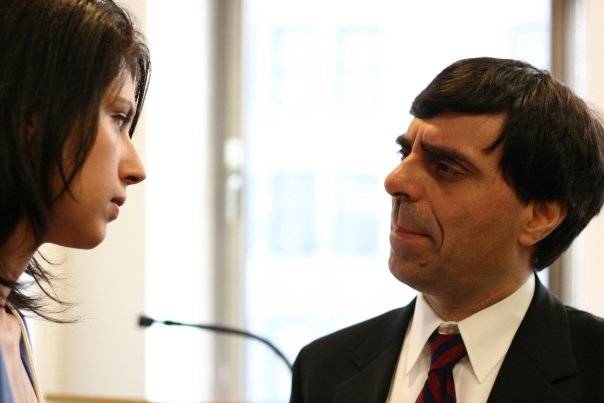
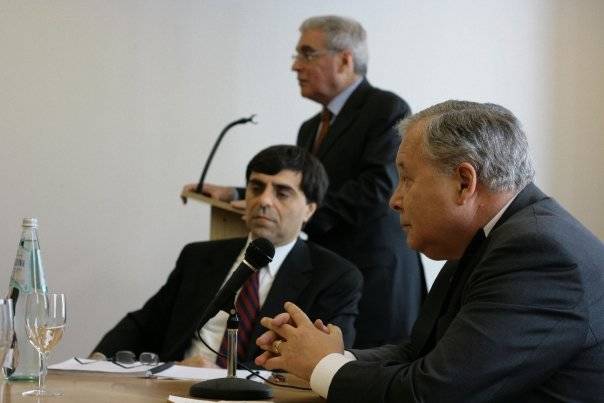
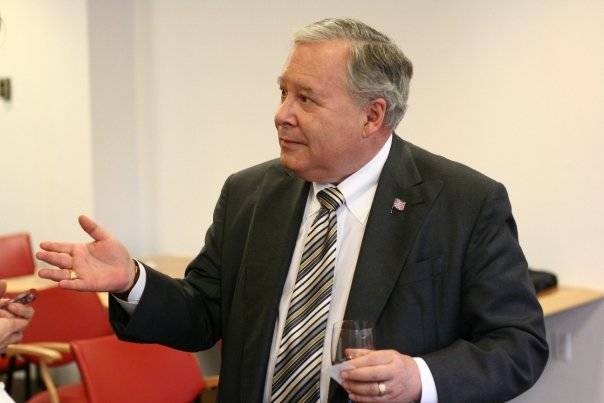
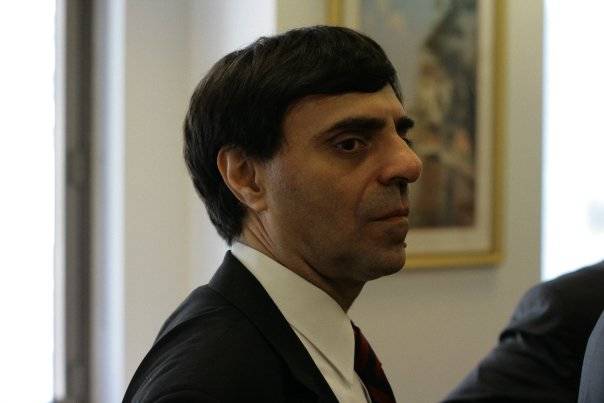
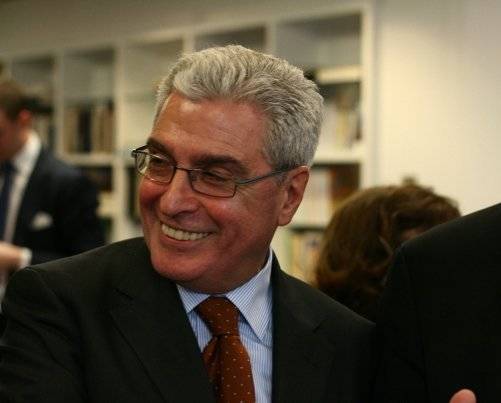
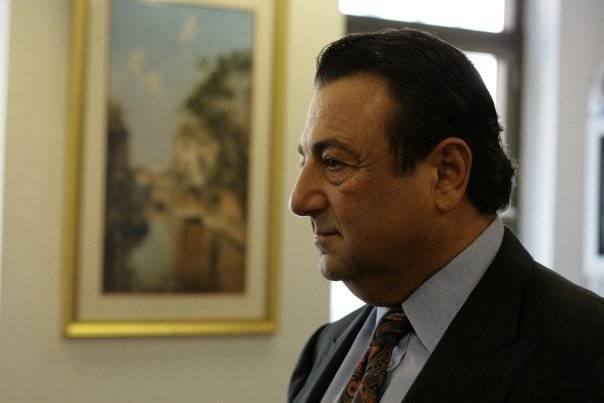
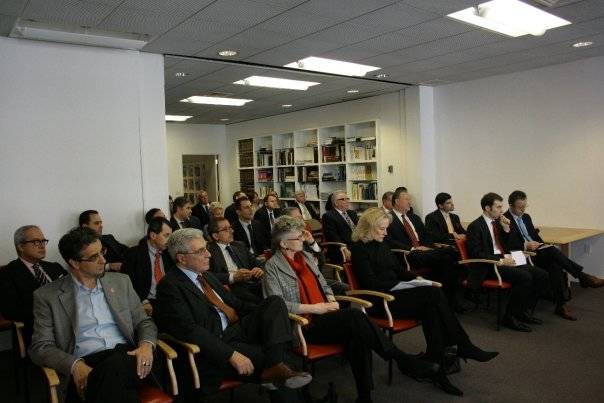
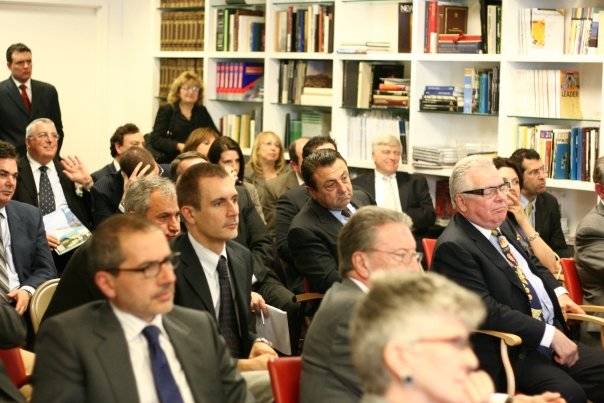
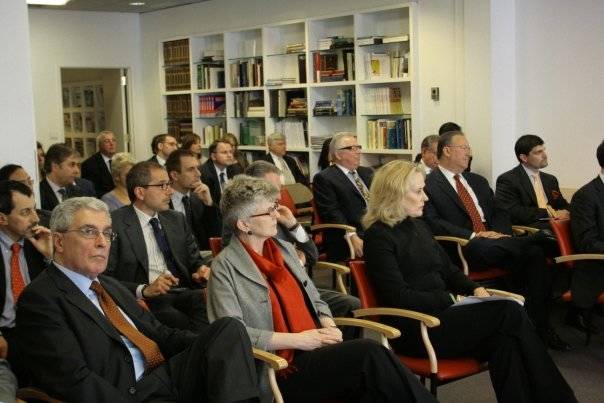
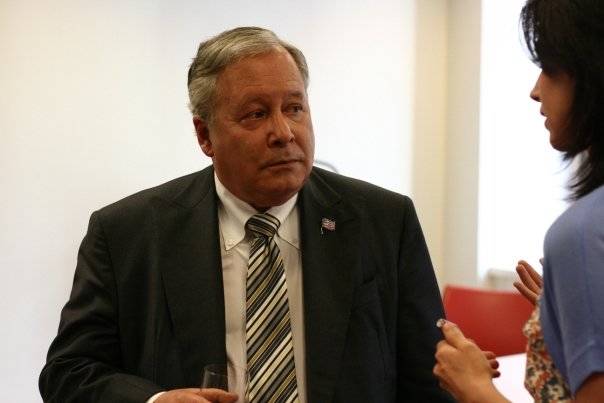
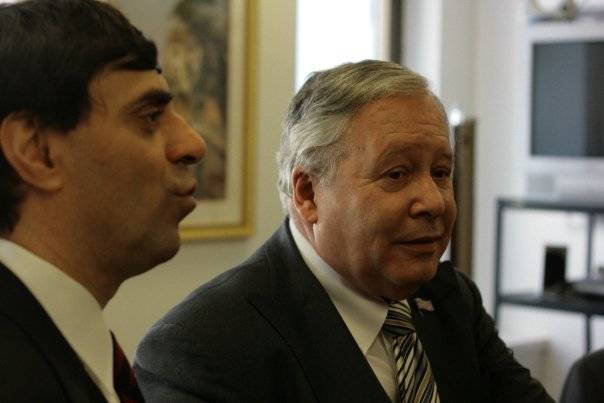



i-Italy
Facebook
Google+
This work may not be reproduced, in whole or in part, without prior written permission.
Questo lavoro non può essere riprodotto, in tutto o in parte, senza permesso scritto.